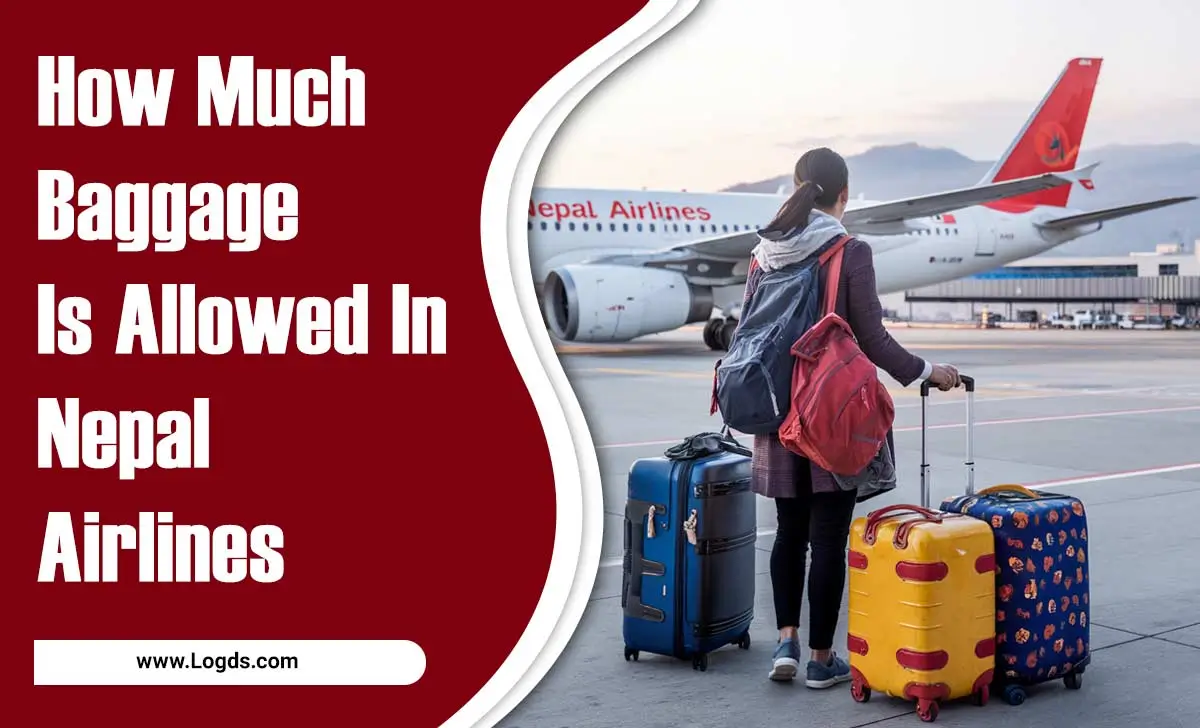The cost of visiting Addis Ababa is surprisingly affordable for many travelers. A smart daily budget can range from approximately $30 to $70 USD per person, covering basic accommodation, local food, and transport. With this guide, you’ll learn how to manage your expenses effectively and enjoy Ethiopia’s vibrant capital without breaking the bank.
Addis Ababa Cost: Your Essential Daily Budget Genius for 2024
Planning a trip to Addis Ababa, the bustling heart of Ethiopia? You might be wondering about the daily expenses. It’s a common concern for travelers: how much should you budget to truly enjoy the city without constant worry about every Birr spent? Many fear sticker shock, but with a little planning, Addis Ababa can be incredibly budget-friendly. At Journey Essentials, we believe in making travel accessible and stress-free. This guide will break down the typical costs and give you the tools to create your perfect daily budget.
We’ll cover everything from where you rest your head to the delicious food you’ll eat and how to get around this fascinating city. Forget the guesswork; we’re laying out the real numbers and practical tips to ensure your Addis adventure is both memorable and financially comfortable. Stick around, and you’ll be a budgeting pro in no time!
Understanding the Addis Ababa Cost Landscape
Addis Ababa is a city of contrasts, and its cost of living reflects that. While luxury options exist, the everyday expenses for a traveler can be remarkably low, especially if you stick to local experiences. Your biggest variable will likely be accommodation, followed by activities and dining choices. Generally, the Ethiopian Birr (ETB) offers a favorable exchange rate for many international currencies, making your travel funds stretch further.
It’s important to remember that prices can fluctuate, especially due to inflation and seasonal demand. However, by understanding the average costs for essential items, you can build a flexible and realistic daily budget. We aim to provide you with the most current insights to help you plan your trip with confidence.
The Core Components of Your Addis Ababa Daily Budget
To create a smart budget, we need to look at the main areas where you’ll be spending your money. These include:
- Accommodation
- Food and Drinks
- Transportation
- Activities and Sightseeing
- Miscellaneous (shopping, tips, unexpected needs)
Let’s dive into each of these to give you a clear picture.
Accommodation: Finding Your Home Away From Home
Your choice of accommodation will significantly impact your daily budget. Addis Ababa offers a spectrum, from budget-friendly guesthouses to comfortable mid-range hotels and luxurious international chains. For budget-conscious travelers, hostels and guesthouses are excellent options. Mid-range hotels offer a good balance of comfort and value, often including amenities like Wi-Fi and breakfast.
Here’s a general idea of daily accommodation costs:
| Accommodation Type | Estimated Daily Cost (USD) |
|---|---|
| Hostel Bed | $8 – $20 |
| Budget Guesthouse/Budget Hotel Room | $20 – $40 |
| Mid-Range Hotel Room | $40 – $80 |
| Higher-End Hotel Room | $80+ |
When choosing, consider location. Staying closer to the city center or areas with good transport links can save you time and money on getting around. Always check reviews for cleanliness and safety, especially if you’re opting for more budget-friendly places. For families, booking a room with extra space or exploring serviced apartments might be a cost-effective alternative.
Food and Drinks: Savoring Ethiopian Flavors
Ethiopian cuisine is a highlight for many visitors! From the staple injera with various stews (wots) to delicious coffee ceremonies, you can eat very well on a budget. Eating at local restaurants and small eateries (known as “food stalls” or “restaurants” in local parlance) will be your most economical option. These places offer authentic flavors at a fraction of the price of tourist-oriented restaurants.
Expect to spend:
- Local Eateries: A filling meal of injera with a meat or vegetable wot can cost as little as $1.50 – $4.00 USD.
- Mid-Range Restaurants: These might offer a wider variety of dishes, including some international options. Expect to pay $5 – $15 USD per person.
- Cafes: Enjoying a traditional Ethiopian coffee ceremony or a simple cup of coffee is generally very affordable, often around $0.50 – $2.00 USD.
- Bottled Water/Soft Drinks: These typically range from $0.50 – $1.50 USD.
Eating at your hotel might be convenient but is usually more expensive. Prioritize exploring local markets and restaurants for the best value and most authentic taste. If you have specific dietary needs, like requiring adult diapers or child diapers for travel, consider packing a sufficient supply from your home country, as these might be harder to find or more expensive locally. However, for general hygiene, hand sanitizer and wet wipes are readily available and affordable.
Transportation: Navigating Addis Ababa
Getting around Addis Ababa is part of the adventure! The city has a growing public transport system and a plethora of taxis. For budget travelers, the blue and white minibuses (the local buses) are incredibly cheap, but they can be crowded and confusing for first-time users. The most common and convenient option for tourists is the blue and white “Blue Bird” taxis, which operate on a meter system or pre-agreed fare.
Here’s a breakdown of transportation costs:
- Blue Bird Taxis (Metered): Trips within the city center can range from $1.50 – $5.00 USD, depending on distance and traffic. It’s always recommended to confirm if the meter is being used or agree on a fair price before starting your journey. You can find them hailed on the street or at designated taxi stands.
- Ride-Sharing Apps: Apps like Ride are available and can offer a convenient, often transparent pricing experience. Fares are comparable to or slightly higher than metered taxis.
- Minibus Taxis: These are the cheapest but also the most challenging for tourists. Fares are extremely low, often less than $1 USD for most inner-city routes, but you need to know your route and be comfortable with crowded conditions.
- Car Rentals: If you plan extensive travel outside the city or prefer more freedom, car rentals are available, but they are a more significant expense and can be accompanied by challenges like driving on Ethiopian roads.
For solo travelers or those with specific mobility needs, taxis and ride-sharing apps offer a good balance of convenience and reasonable cost. If you’re traveling with family and require more space, you might need to take multiple taxis or negotiate a price for a larger vehicle.
Activities and Sightseeing: Immersing Yourself
Addis Ababa offers a wealth of cultural and historical attractions. Entrance fees to museums and sites are generally very reasonable, making it easy to fill your days with exploration without immense cost.
Some popular attractions and their estimated costs include:
- National Museum of Ethiopia: Home to “Lucy,” this is a must-visit. Entrance is typically around $2 – $5 USD.
- Holy Trinity Cathedral: A stunning and historically significant cathedral. Entry fees are usually in the $2 – $5 USD range.
- Ethnological Museum (formerly the Imperial Palace): Showcases Ethiopian art, culture, and history. Expect to pay $2 – $5 USD for admission.
- Merkato: One of the largest open-air markets in Africa. Wandering through is free, but be mindful of your belongings and prepared for a sensory experience!
- Mount Entoto: Offers panoramic views of the city. Transport to the top will be your main cost, plus any minimal entry fees for specific sites within the park if applicable.
Many experiences, like exploring local neighborhoods, enjoying street art, or visiting local coffee shops, are free or very low cost. Budgeting around $10 – $25 USD per day for activities should allow you to visit several key sites and enjoy local culture.
Miscellaneous Expenses: The Little Things
Don’t forget to factor in those smaller, often overlooked expenses. This category includes things like:
- Souvenirs: If you plan to buy gifts or mementos.
- Tips: While not as prevalent as in some Western countries, tipping for good service at restaurants or for guides is appreciated. A small amount (5-10%) is usually sufficient.
- Toiletries and Personal Care: While staple items are available, specific brands or specialized products (like adult diapers or travel-sized diaper creams for babies) might be more accessible and affordable to bring from home.
- SIM Card/Data: If you want local connectivity, purchasing a local SIM card is very inexpensive.
- Unexpected Costs: Always have a small buffer for unforeseen circumstances.
Allocate at least $5 – $15 USD per day for these miscellaneous items, more if you plan on significant souvenir shopping.
Creating Your Addis Ababa Daily Budget: Putting It All Together
Now, let’s combine these elements to create a realistic daily budget. Remember, these are estimates, and your actual spending will depend on your travel style.
Budget Traveler (Focus on Local Experience)
This traveler stays in guesthouses, eats at local eateries, uses public transport or taxis sparingly, and focuses on free or low-cost attractions.
- Accommodation: $25
- Food & Drinks: $15
- Transportation: $8
- Activities: $10
- Miscellaneous: $5
- Total Estimated Daily Budget: $63 USD
Mid-Range Traveler (Comfort and Convenience)
This traveler opts for comfortable mid-range hotels, eats at a mix of local and slightly nicer restaurants, uses taxis regularly, and visits popular paid attractions.
- Accommodation: $50
- Food & Drinks: $25
- Transportation: $15
- Activities: $20
- Miscellaneous: $10
- Total Estimated Daily Budget: $120 USD
It’s also wise to have a separate budget for transit to and from Addis Ababa, visa fees, and travel insurance. For instance, ensure you have reliable supplies for personal needs, such as adult diapers for longer flights or child diapers for your little ones, as these can be challenging to source reliably abroad. Brands like Abena or Depend offer discreet and high-quality options that can provide peace of mind.
Tips for Saving Money in Addis Ababa
Beyond understanding the costs, here are some practical tips to stretch your Birr further:
- Embrace Local Food: Don’t shy away from small, bustling eateries – they often serve the most delicious and authentic food at the best prices.
- Master the Taxi Fare: Learn to negotiate politely or insist on the meter. Knowing common routes and fair prices for common journeys will help.
- Walk When Possible: If your accommodation is centrally located, walking can help you discover hidden gems and save on transport.
- Drink Local Coffee: Enjoying coffee at a local cafe is not just a budget-friendly treat but also a cultural experience.
- Haggle Respectfully: In markets, polite bargaining is expected when purchasing goods, but not for food or metered transport.
- Travel Off-Peak: If your schedule allows, visiting during the shoulder seasons can sometimes lead to lower accommodation prices.
- Utilize Free Wi-Fi: Many cafes and hotels offer free Wi-Fi, so you can manage communication and planning without constant data charges.
Traveling with Specific Needs: Comfort and Preparedness
For travelers who require specific personal care items, like adult diapers for managing incontinence or child diapers for potty-training toddlers, preparedness is key. While Ethiopia is developing, the availability and variety of specialized products might be limited compared to Western countries. It’s often more practical and reassuring to pack a sufficient supply from home. Brands known for reliability and comfort, such as those found at Depend or other major adult care providers, can ensure comfort during travel, from long flights to exploring the city. Similarly, for parents traveling with infants, ensuring you have enough child diapers, wipes, and soothing creams like Destin can prevent unnecessary stress and ensure everyone’s comfort.
Navigating the Ethiopian Birr (ETB)
Understanding local currency is vital. The Ethiopian Birr (ETB) is the official currency. The exchange rate fluctuates, but as of mid-2024, roughly 55-60 ETB to 1 USD is a common range.
Key points:
- ATMs: ATMs are available in Addis Ababa, especially in larger banks and at the airport. However, not all ATMs accept international cards, and withdrawal limits can be low. It’s wise to have some cash on hand.
- Currency Exchange: You can exchange money at the airport, commercial banks, and authorized exchange bureaus. Rates are generally competitive.
- Credit Cards: Credit cards are accepted in larger hotels, some restaurants, and bigger shops, but they are not as widely used as cash. Always have cash for smaller establishments and local markets.
- Carrying Cash: It’s advisable to carry a mix of small denominations for daily expenses and larger bills for significant purchases or airport exchanges.
For the most accurate and current exchange rate, consult a reliable source like the National Bank of Ethiopia’s official website or a trusted financial news outlet.
Conclusion: Your Addis Ababa Budget Adventure Awaits!
Addis Ababa offers an incredible travel experience that can be surprisingly accessible to various budgets. By understanding the costs involved in accommodation, food, transport, and activities, and by employing a few smart money-saving tips, you can confidently plan your daily expenditures. Whether you’re a seasoned backpacker looking for the cheapest options or a traveler seeking a comfortable yet affordable stay, your perfect budget is within reach.
Remember, the key is flexibility and embracing the local experience. With this guide, you’re well-equipped to create an “Addis Ababa Cost: Essential Daily Budget Genius” plan that allows you to explore this unique city to its fullest, creating memories that far outweigh the expense. Enjoy your journey essentials and happy travels!
Frequently Asked Questions (FAQ)
What is the most affordable way to eat in Addis Ababa?
Eating at local eateries, often called “restaurants” or small food stalls, is the most affordable way to experience authentic Ethiopian cuisine. Dishes like injera with various stews (wots) are very inexpensive and filling.
Are taxis in Addis Ababa metered?
Yes, many taxis, particularly the common blue and white “Blue Bird” taxis, are supposed to be metered. It’s always best to confirm if the driver will use the meter or agree on a fair price before your journey begins to avoid misunderstandings.
Is it safe to drink tap water in Addis Ababa?
It is generally not recommended for tourists to drink tap water in Addis Ababa. It’s safer to purchase bottled water, which is widely available and affordable, or to carry a reusable water bottle with a filter.
How much should I budget for tipping in Addis Ababa?
Tipping is appreciated but less formal than in some Western countries. For good service at restaurants, a tip of 5-10% is customary. For guides and drivers, tipping is also common based on the quality of service and the length of engagement.
Can I use credit cards in Addis Ababa?
Credit cards are accepted in larger hotels, higher-end restaurants, and some supermarkets or shops. However, for most local markets, small eateries, and everyday purchases, cash (Ethiopian Birr) is essential.
What are the best free or low-cost activities in Addis Ababa?
Wandering through Merkato, enjoying the panoramic views from Mount Entoto (transport cost excluded), exploring local neighborhoods on foot, and visiting local coffee shops are excellent free or low-cost activities. Many museums have very reasonable entrance fees too.
Is it generally expensive to visit Addis Ababa compared to other African capitals?
Compared to many major African capitals, Addis Ababa can be significantly more affordable, especially regarding food and local transportation. Accommodation can vary, but budget and mid-range options offer excellent value.



